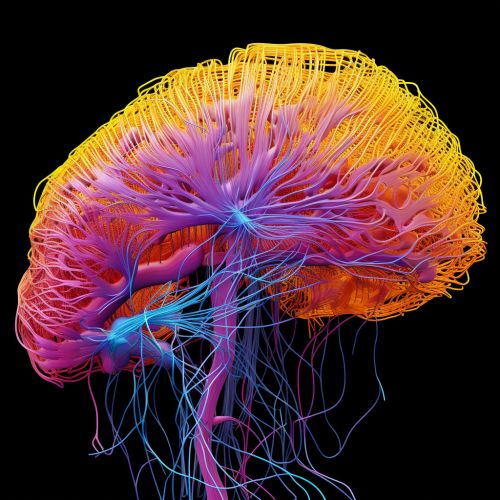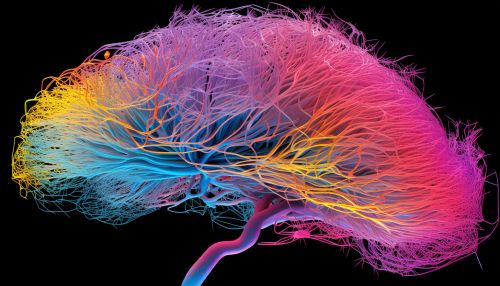Neurobiology of Language
Introduction
The neurobiology of language refers to the study of how the brain processes, comprehends, and produces language. This multidisciplinary field combines aspects of neuroscience, psycholinguistics, cognitive science, and linguistics to understand the neural mechanisms underlying language abilities.


Neural Basis of Language
Language processing involves a complex network of brain regions. The two most well-known areas associated with language are Broca's area and Wernicke's area, located in the left hemisphere of the brain.
Broca's Area
Located in the frontal lobe, Broca's area is associated with speech production and language comprehension. Damage to this area can result in Broca's aphasia, a condition characterized by difficulties in speech production but relatively preserved comprehension.
Wernicke's Area
Wernicke's area, located in the superior temporal gyrus, is primarily associated with the comprehension of speech. Damage to this area can lead to Wernicke's aphasia, characterized by fluent but nonsensical speech and severe comprehension difficulties.
Language Acquisition
Language acquisition is a complex process that involves the development of linguistic skills from infancy to adulthood. The neurobiological mechanisms underlying this process are not fully understood, but research suggests that it involves a combination of genetic predispositions and environmental influences.
Critical Period Hypothesis
The Critical Period Hypothesis posits that there is a specific time window during which language acquisition occurs most efficiently. After this period, language learning becomes significantly more difficult.
Neurobiology of Bilingualism
Bilingualism refers to the ability to use two languages fluently. The neurobiological basis of bilingualism is a topic of ongoing research, with studies suggesting that bilingual individuals may have unique neural networks for language processing.
Neurological Disorders Affecting Language
Several neurological disorders can affect language abilities, including aphasia, dyslexia, and Autism Spectrum Disorder.
Aphasia
Aphasia is a language disorder that results from damage to the parts of the brain responsible for language. It can affect speech, writing, reading, and comprehension.
Dyslexia
Dyslexia is a learning disorder characterized by difficulties with reading despite normal intelligence. Neurobiological research has shown differences in the brain structures and functions of individuals with dyslexia.
Autism Spectrum Disorder
Autism Spectrum Disorder (ASD) is a developmental disorder characterized by difficulties with social interaction and communication. Some individuals with ASD may also have language impairments.
Conclusion
The neurobiology of language is a complex and multifaceted field that seeks to understand how our brains process, comprehend, and produce language. While significant progress has been made, much remains to be discovered about the intricate neural networks that underpin our language abilities.
